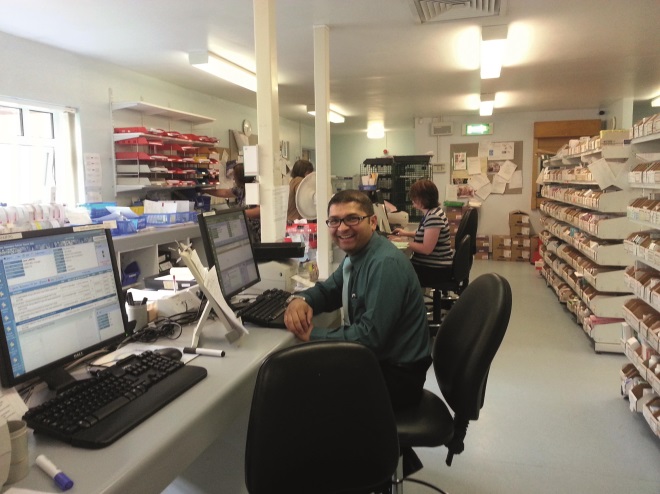
Nottingham Healthcare Trust
I knew I wanted to work in a specialist area of pharmacy before I started my pharmacy degree. During my second year at university, I started thinking about what area that could be. Mental health and psychology interested me so I arranged to do a week’s placement with Nottinghamshire Healthcare Trust, which runs the mental health service in the area. I got in touch with one of the pharmacists, who organised how I would spend my time to experience a variety of the services that the trust delivers.
Before my placement, my personal tutor suggested that I watch a documentary called “Sectioned”, which had been filmed at Highbury Hospital and was broadcast by the BBC in 2011[1]
. It gave me some insight into the types of mental health conditions that are treated at the hospital, as well as the admission and sectioning process.
I began my placement at Highbury, the main hospital for the trust, which has five acute wards, and specialist units for intensive care, dementia, learning difficulties and substance misuse. The hospital has a small satellite pharmacy on site, with two pharmacists based there permanently and three others who move between the other hospitals in the trust. The trust’s main pharmacy is located at another hospital called the Well’s Road Centre.
On my first morning I was allowed to sit in on one ward’s weekly multidisciplinary team meetings where each patient’s care was discussed individually and community support was arranged for those who were to be discharged. As well as the pharmacist, the team included the ward manager, consultant, senior house officers, psychologist and an occupational therapist.
Two of the conditions that were seen frequently at the hospital were schizophrenia and schizoaffective disorder. A variety of drugs are available to treat the symptoms of these conditions but in almost every case I saw antipsychotics were used. Never having studied these drugs before I first thought that there was a large variety to choose from but, in fact, due to their diverse side effect profiles, it can be difficult to find the right drug for a patient. One of the biggest challenges that a mental health pharmacist faces is recommending a drug and a method of administration that balances the mental and physical health needs of a patient. For example, olanzapine frequently causes weight gain and impairs glucose tolerance, which may make it unsuitable for some patients even if it controls their psychosis well.
Specialist wards
Later in the week I made a visit to a different hospital site, which had a mother and baby ward. This facility allows mothers to have their child with them during their recovery, minimising the disruption that a hospital stay might cause to their relationship. The pharmacist faces other challenges here because the patients have different physical needs — for example, he or she must consider whether the drugs will transfer into breast milk.

Source: Catherine Leggett
The dispensary at Highbury Hospital
I also visited the main pharmacy site for the trust and saw some of the ‘behind the scenes’ work that makes the pharmacy services run smoothly, such as checking TTO requisitions (prescriptions for medicines for patients “to take out” of the hospital) before they can be dispensed. While at this site I attended a ward round on a low security forensic ward, which is a specialist ward for patients with mental health problems who have been arrested or found guilty of a crime. There was higher security here than on the other wards I visited but the staff were calm and pragmatic, and responsive to the individual needs of the patients.
The pharmacists I shadowed were supportive but also challenged me, so I learnt a huge amount in just a week. By visiting so many different specialist units on my placement I saw how varied the role of a mental health pharmacist is. It is a fascinating and challenging specialism and my placement showed me that, while mental health conditions cannot be cured, the right drugs can make all the difference to a patient’s quality of life. For that reason the role of the pharmacist in the mental health team cannot be underestimated and I would love to work in this area in the future.


